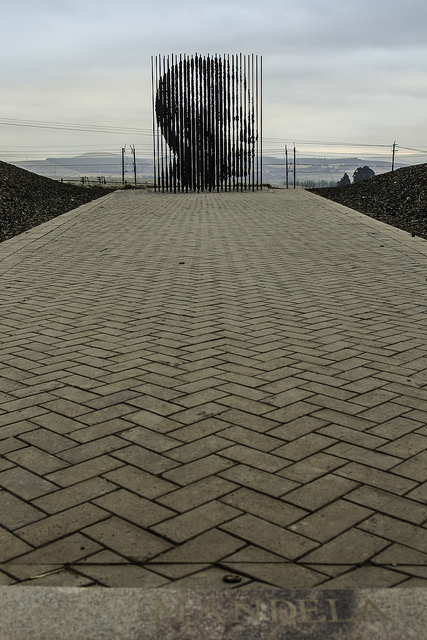Just this Wednesday, someone who’d returned from Myanmar was asking if the time of the Great Ones has passed. He was referring to the indomitable persistence of Aung San Suu Kyi, who was imprisoned there in 1989, just before winning a huge election victory — at nearly the same moment when Nelson Mandela was released from his 27 years in three different apartheid-era hellholes. “Is it because of social media?” someone else wondered. Do they effectively diminish everyone on the planet with their intimate scrutiny and presentation of personal minutiae? Can there be Mandelas in the future?
But I don’t think the proximity of media inspection is what determines greatness, or more modestly put: that immensely admirable quality. I’d say it’s more a matter of the clarity of the battle you are fighting. When you’re on the outside and the issue is as stark as apartheid or a brutal military dictatorship, you take your stand and, provided you’re willing to pay any price, the rest follows. But when you take power in some form, the process grows more complex. I don’t think it’s so much that compromise is unavoidable, or that the conflicts grow annoyingly grey; it’s more that everything takes so long, and you almost certainly won’t have time to do all that needs to be done.
Mandela presided over a total, noble victory against apartheid — from his cell! Personally it convinced me to never make historical predictions, or despair about anything political. I’d have sworn I’d never see such a thing in my lifetime. Then, as president till 1999, and since, he watched as the actual condition of the people he’d been ready to sacrifice everything for deteriorated socially and economically to where it may be worse than it was while he was in prison. There are at least valid arguments to be made about that; though it’s also possible that if he’d refused to make the concessions to global economic power which he made, things might have been even more calamitous. He also watched some of his close comrades bathe shamelessly in venal personal privilege.
What can you say? It proves how much a courageous individual can achieve in the face of history. And how little. But there’s also this: I know people who’ve been devoted all their lives to South Africa’s cause who are savagely disgusted by the sellouts that occurred there; yet not one of them has spoken a harsh word against Mandela himself. In itself that’s an impressive tribute.
I wonder about Graca Machel, his widow. She had been married to Samora Machel, the first president of liberated Mozambique, who led it to victory over Portuguese colonialism in the 1970s. He was, like Mandela, both homey and magnetic. I once saw him open a revolutionary congress there by leading them in song. He was almost certainly assassinated by a South African plot in 1986 for his support to the African National Congress while Mandela still languished in Pollsmoor Prison. So she witnessed from close range both the triumph and then — not the betrayal — but the grinding disappointment of two struggles. She was Mandela’s third wife; Winnie was his second. These heroic personal biographies aren’t always accompanied by grand or tragic romances, but it’s uncanny how often they are. I can’t help muse about the perspective on her times she bears.
And there’s this: in the eyes of respectable Western opinion, Mandela went almost overnight from being a reviled, imprisoned terrorist to being the world’s most admired statesman. Yet he hadn’t changed to even the mildest degree in who he was and what he believed. They changed; for their own largely economic motives, they decided apartheid couldn’t stick it, and big change was inevitable in South Africa. Canada’s Joe Clark and Brian Mulroney pulled some of the levers on that switch. They never apologized, they just reversed course. There was something diabolically fickle, arbitrary and objectionable about it. Some people out there on the far right still haven’t got the memo and remain understandably confused. You can’t help wondering what Mandela himself made of it, and what wry thoughts about it he kept to himself and his inner circle.
This article was first published in the Toronto Star.
Photo: Fr Lawrence Lew, O.P./flickr



